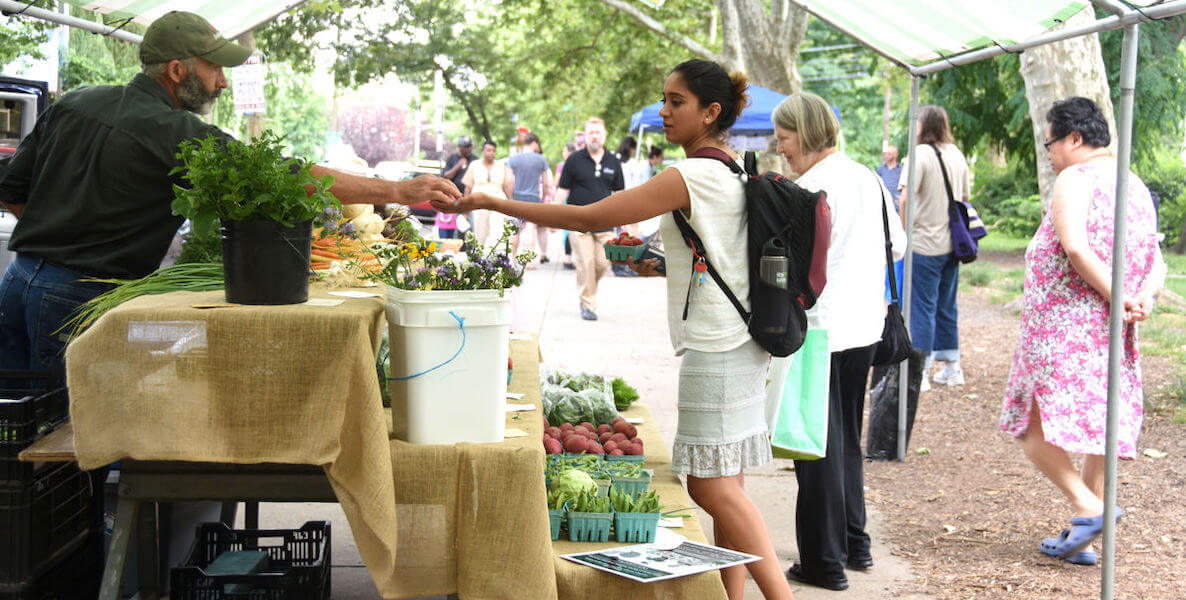As befits a city with the highest poverty rate in the country, Philadelphia also has a high number of food deserts—neighborhoods far from supermarkets that regularly stock affordable fresh produce. For thousands of poor residents, infrequent access to fruits and vegetables has devastating consequences—higher rates of obesity, diabetes, heart disease and other chronic illnesses that result from a poor diet, often among multiple generations.
Since 1992, The Food Trust has been a national pioneer in trying to change that, through education, policy work and access. It opened its first Farmers Market near Tasker Homes, a public housing complex in South Philly, in the early 1990s, well before the term locavore meant anything to anyone. It now runs over 27 markets in zip codes with high poverty rates, serving 500,000 people a year.
We lead the nation in this, which is both a good and bad thing: We have a greater need than most, but we are also on the forefront of working to solve the problem.
“We’ve been operating farmer’s markets since before it was really hot—and not in hipster neighborhoods, or yuppie neighborhoods,” says Nicky Uy, senior associate of The Food Trust’s farmers market program. ”We’re in neighborhoods that have no other source of fruits and vegetables.” The Food Trust was also among the first markets to accept food stamps for produce—and then to continue accepting Access cards when the federal government switched from paper stamps to electronic swipe cards.
In 2010, the Centers for Disease Control provided funds to 55 health departments across the country to fight obesity or smoking. Philly won grants for both. That allowed the Department of Public Health, working with The Food Trust, to open 10 more markets in one year and to launch Philly Food Bucks, which gives Access Card holders a $2 coupon for fruits and vegetables for every $5 they spend—expanding their shopping dollars by 40 percent.
“We recognize the need to push all different levers to give people healthy food options,” says Uy, senior associate of The Food Trust’s Associate farmers market program. “Knowledge is useful, but so is access, and there are so many access issues for people. That’s why we started doing farmers markets. They’re now now considered a public health intervention, which is amazing.”
Food Trust farmers markets in action 
CLARK PARK FARMERS MARKET
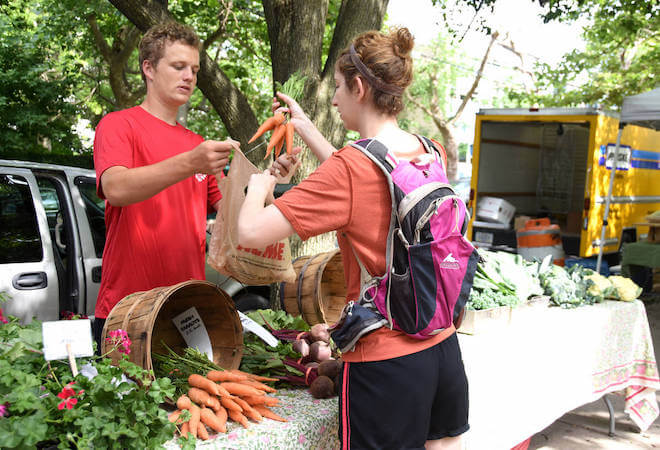
Clark Park, one of Food Trust’s first produce stands, opened in 1998 in what was then (and still is) a changing neighborhood. It’s now a destination, drawing customers—with babies and dogs—from the suburbs and around town. But it is also the Food Trust market that still takes the largest amount of food stamps.
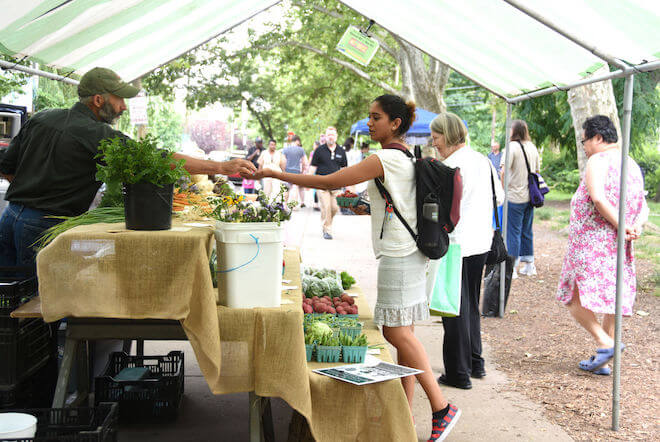
At its two weekly markets in Clark Park, Lankenau Medical Center also offers free health screenings for weight, height and blood pressure. Uy says the Clark Park market demonstrates the power of bringing fresh food into a neighborhood: Past park presidents have credited the Food Trust with helping to make the park and, by extension, the neighborhood safer and more welcoming. 43rd Street and Baltimore Avenue, Thursdays 3-7pm; Saturdays 10am-2pm
GERMANTOWN FARMERS MARKET
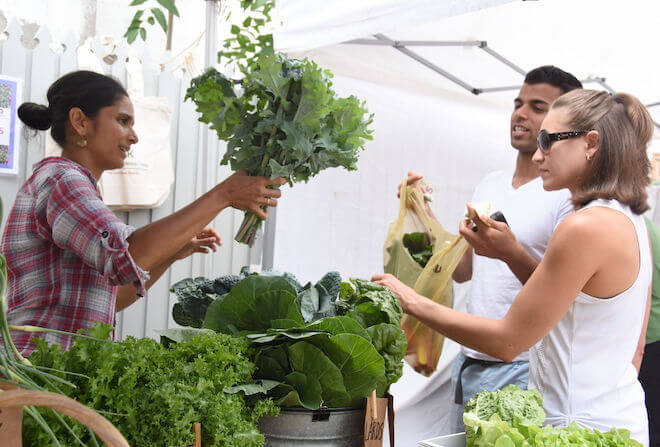
As much as possible, The Food Trust tries to offer produce grown in the neighborhoods around its markets, encouraging urban farming and immediate access to fresh food. Much of the produce sold at the Germantown market is as local as you can get: It’s grown and picked fresh directly from Wyck, a 2.5-acre urban farm set on the historic mansion grounds, in the midst of a low-income neighborhood.
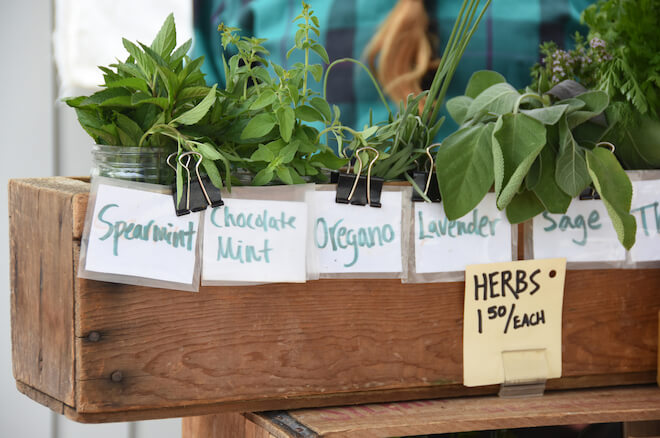
Market customers can visit the farm, including chickens, while they shop. “Anytime we can connect people to how food is grown is a good thing,” Uy says. “It helps to understand the work that goes into their food.” The Food Trust has resisted requests to move the market into Mt. Airy or other areas of Germantown. “That’s not what we do,” Uy says. “We chose Wyck specifically because of their programming, and because it’s an area of high need compared to others.” 6026 Germantown Avenue, Fridays 2pm to 6pm
STRAWBERRY MANSION FARMERS MARKET
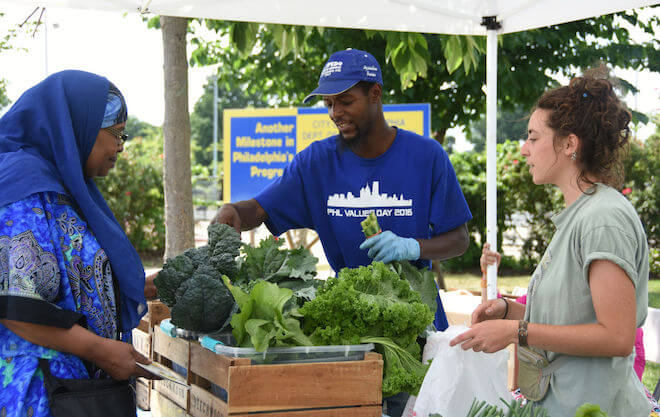
This market, in Strawberry Mansion, abuts Fairmount Park, where much of the produce is grown in urban farms run by the East Park Revitalization Association. The neighborhood is typically Philly, in its best and worst ways: It contains some of the poorest blocks in the city, but is across from the largest urban park in the country, near some historic mansions, orchards and urban farms.
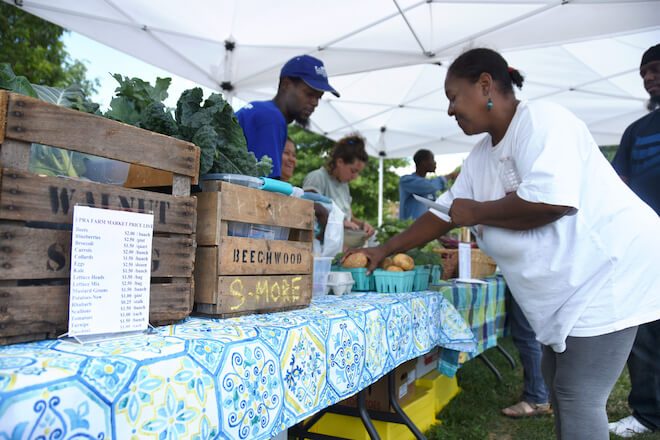
The weekly market is a way to bring residents to the park, encountering nature and farming along with their fresh produce. It has been life changing for some residents, like Sharon Lewis, who lives across the street from the market and has been a customer for four years. In the picture above, she holds a pamphlet with recipes and nutrition information The Food Trust provides at every market it runs, to help people easily incorporate fresh food into their diets. 33rd and Diamond streets, Wednesdays 2pm to 6pm
FAIRMOUNT FARMERS MARKET
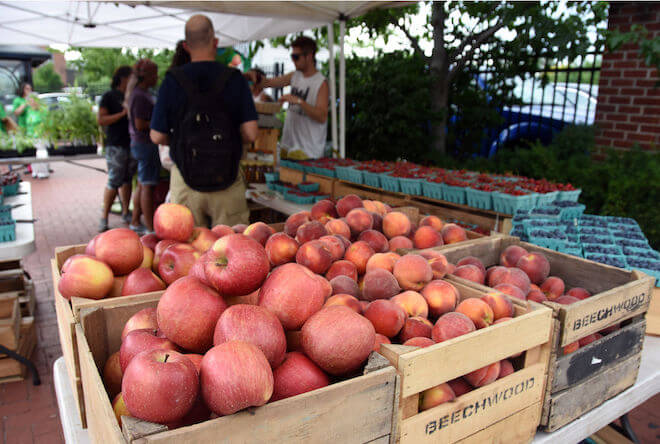
The Fairmount market is within a few blocks of Whole Foods—but is like a world away from the wallet-crushing grocery store. It bustles weekly with over 11 stalls, from crisp produce to knife sharpening to fresh dairy.among the vendors every week is Urban Stead, a farmstand operated by youth who grow and sell produce from Francisville Farm and Orchard, a nonprofit that teaches urban farming to city children—thereby also fulfilling another of Food Trust’s missions, to educate people about nutrition and healthy eating. 22nd Street and Fairmount Avenue, Thursdays 3pm to 7pm
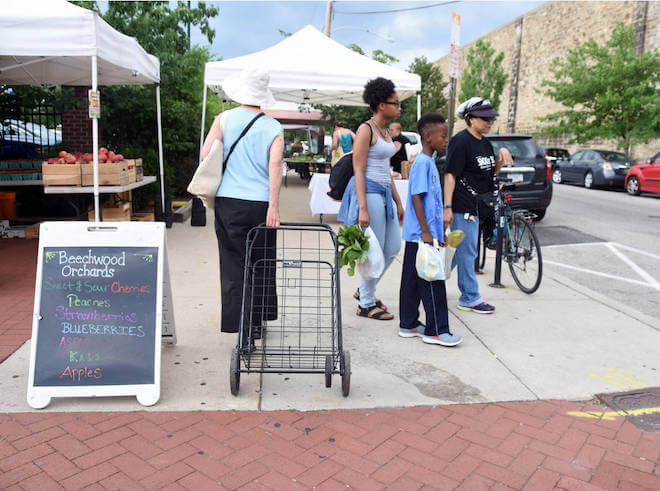
HUNTING PARK FARMERS MARKET
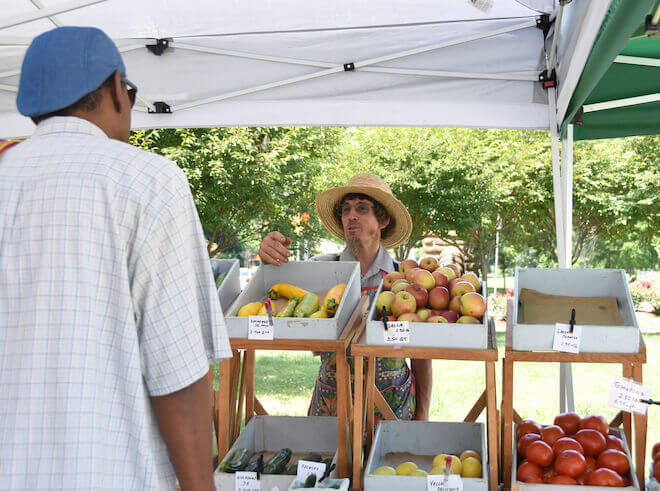
One of The Food Trust’s newer farmers markets, Hunting Park is modeled after the success at Clark Park, as part of an effort to renew what should be a magnificent public space in North Philadelphia. On 88 acres, with a public swimming pool, Hunting Park is one of the city’s larger parks, but it has for years been more a menace than a community asset.
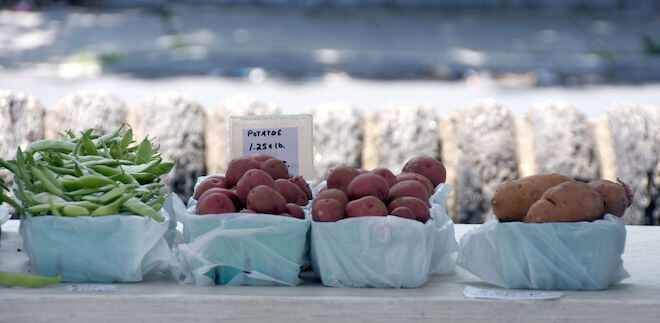
Now, a community-led effort is reviving what Uy describes as “the neighborhood’s backyard,” with the Saturday market as one key to change. “If you can’t walk your dog in the park because it’s not safe, and there’s no healthy food, that makes healthy living harder,” Uy says. “The market brings legitimate commerce to the park. It’s been such a good thing for the community.” Old York Road and West Hunting Park Avenue, Saturdays 10am to 2pm
![]()
RELATED


